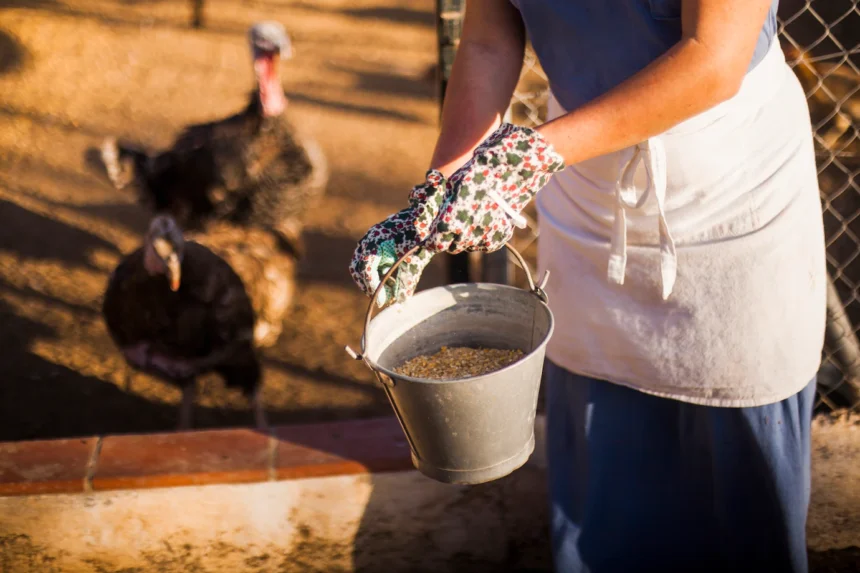Here are 10 things you should know about a poultry farmer job:
- Responsibilities: Poultry farmers are responsible for the management and care of poultry, typically chickens, turkeys, or ducks. They oversee all aspects of the operation, including breeding, feeding, housing, and disease control.
- Animal Husbandry: Poultry farmers need a solid understanding of animal husbandry principles. They must know how to handle and care for the birds, ensure proper nutrition, manage breeding programs, and maintain a healthy environment.
- Farm Management: Poultry farmers often operate their own farms or manage farm operations. This involves planning and organizing the daily activities, supervising staff, maintaining records, and ensuring compliance with regulations and industry standards.
- Facility Design and Maintenance: Poultry farmers need to design and maintain suitable housing and equipment for the birds. They should have knowledge of building structures, ventilation systems, lighting, and biosecurity measures to create an optimal environment for the poultry.
- Health and Disease Management: Maintaining the health of the flock is crucial. Poultry farmers need to implement preventive measures, such as vaccinations and biosecurity protocols, to minimize the risk of diseases. They should also be able to recognize symptoms, diagnose illnesses, and administer appropriate treatments.
- Egg and Meat Production: Poultry farmers may specialize in egg or meat production. For egg production, they need to manage laying hens, collect and handle eggs, and ensure quality control. In meat production, they oversee the growth and development of the birds, coordinating processing and distribution.
- Marketing and Sales: Poultry farmers may be involved in marketing their products. This includes identifying potential customers, negotiating contracts, and promoting their poultry products to wholesalers, retailers, or consumers.
- Business and Financial Management: Poultry farming is a business, so knowledge of business and financial management is essential. Poultry farmers need to handle budgets, analyze costs and revenues, manage inventory, and make informed decisions to ensure profitability.
- Industry Knowledge: Staying updated on industry trends, advancements in poultry farming techniques, and regulatory changes is important for poultry farmers. They should be aware of market demands, new technologies, and sustainable farming practices to remain competitive.
- Physical Demands: Poultry farming can be physically demanding. Farmers may need to perform tasks such as lifting feed bags, cleaning facilities, and handling birds. They should be prepared for long hours, including early mornings, and be able to work in various weather conditions.
Remember that specific requirements and practices may vary depending on the region and type of poultry farming. It’s always beneficial to gain hands-on experience, acquire relevant education or training, and seek guidance from experienced professionals in the field.
Join 'Farmers Mag' WhatsApp Channel
Get the latest Farming news and tips delivered straight to your WhatsApp
CLICK HERE TO JOIN






